Last night I felt a feeling I hadn’t felt all week: I was happy.
Not “not sad.” Not “fine, I guess.”
Actually happy.
The day hadn’t begun auspiciously, as days that begin after a fourth bad night’s sleep in a row are wont not to do, and I wasn’t pleased to find myself canceling a dinner with a beloved friend, but I knew well that by the time the dinner hour approached whatever fuel I’d manifested to push through to that point would be long since gone to fumes. Beloved friends being beloved friends for good reason, my beloved friend was all “Yes, fine, do what you need to do, look after yourself, no worries.”
The world, as you certainly don’t need me to tell you, so I certainly won’t, is an increasingly sinister place dominated by defiantly, brazenly evil people, and that is, not to put too fine a point on it, exhausting (and much, much worse than exhausting). (I think sometimes of my mother’s dying in May 2021, she having experienced a few months of relative peace after four noxiously deadly years and believing that the worst was over and that her children and grandson might be in the clear, and I’m glad that she died in that relative peace and I can only imagine how absolutely goddamn furious she would be right now.)
As well—and, yes, I recognize my privileged perch, I always do, roof over my head, decent food to eat, all the safe-and-sound bourgeois trappings—the periodic uncertainties and travails closer to home, those are also wearing, and dispiriting, and debilitating, and sometimes one grows weary of picking oneself up, dusting oneself off, and starting over again yet again.
I often find that taking something off my agenda—whether it’s a presumably pleasant thing, like a dinner with a friend for which, as I said, I don’t feel I possess the requisite social jubilance, or a tedious administrative task that might possibly be put off a day or two—can ease the tension, and following that with a few hours of simply not trying all that hard to do anything—again, if one is in the position to put one’s feet up—can be highly rebalancing.
So I spent a few hours reading a new novel I’m hugely taken with (more on that shortly), cuddling and dozing with our dog, and, because yesterday happened to be the birthday of the great actor Peter Lorre, doing a bit of online celebrating with other Lorre-reverent people.
(There’s a point to this, just hang on.)
The Lorre celebration spiraled and expanded, as these things tend to do, with forays into the actor’s chilling performance in Fritz Lang’s 1931 M (with a sidebar conversation on that film’s ingenious use of sound, making a virtue of the era’s technological limitations), his charming (yes, charming!) performance in the gritty, grotty Three Strangers (1946),1 his end-of-career penchant for self-caricature, particularly in his trio of Roger Corman films, and, taking in his early stage appearance in the 1929 Kurt Weill–Elisabeth Hauptmann–Bertolt Brecht2 collaboration Happy End, a musical on which I dote,3 further spirals and expansions that led, semi-digressively, to some deep love being expressed for the memorably bizarre Grayson Hall, who appeared in the show’s belated (and brief) Broadway premiere in 1977.

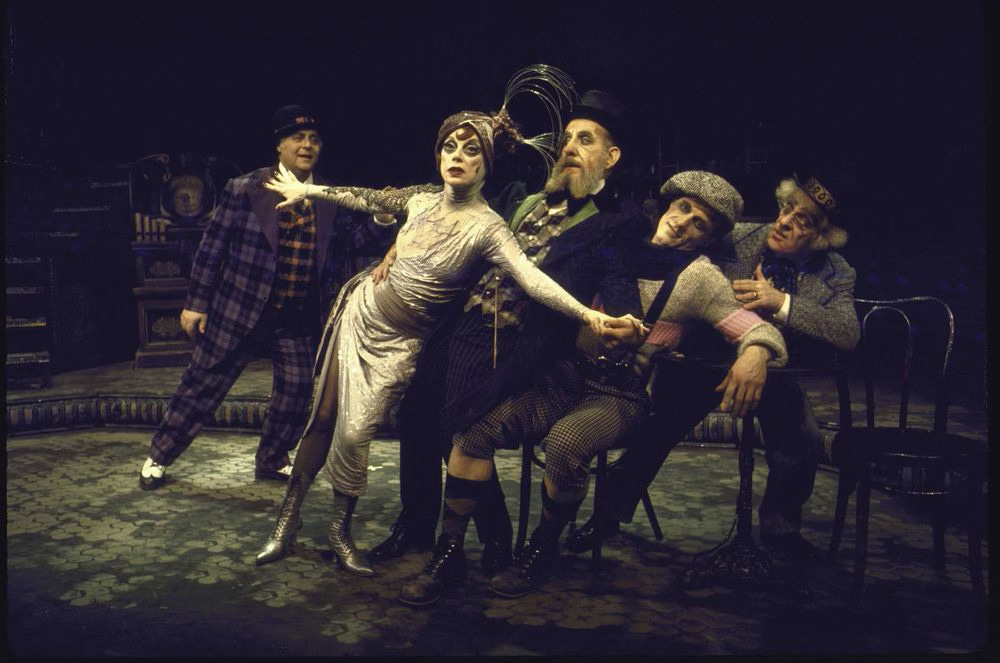
In any event, it was pleasant to geek out a bit with fellow geeks, and I was reminded that hanging out with likeminded people who like the things that you like, and who like things that you don’t yet know at all but might like, is a pleasant way to pass the time in between shrieking at one another as passes these days for a lot of, if not most, online discourse.
Or, as my Bluesky pal Paul Travis “PT” Klein commented/augmented, “Being open to sharing an earnest moment together and taking an interest in understanding how others are thinking about the world is an active practice that enriches our lives.”
As the sun was setting I hopped over to the Criterion Channel to finish watching the 1944 Michael Powell–Emeric Pressburger4 film A Canterbury Tale, which I’d begun weeks ago and never got back to, and that’s where/when the joy kicked in. It’s a glorious film (unlikelily, I’d never seen it), rather a bit less pretentious than much of the celebrated Powell-Pressburger output,5 endearingly given to mysticism and the kind of heartfelt, non-jingoistic love of, you’ll pardon the word, homeland that the Brits do exceedingly well,6 plus it’s funny, plus it features some Our Gang–caliber children, plus it centers on a MacGuffin of a whodunit plot that pays off charmingly and movingly, and it’s monumentally well acted, especially by Sheila Sim, Eric Portman, and the great Dennis Price.
By the time I got to The End, I was so pleased, so happy, so joyful, so grateful to a work of art and what it had managed to do to/for my spirits, and I guess that the moral of the story—or at least a moral of the story—is that amid the relentless horrors of the world (and this morning’s horrors are especially horrific—and, again, I don’t need to wallow in them publicly on your behalf, so I won’t), it’s crucial, I think, to enjoy, to revel in, things that can make life feel worth living, otherwise what is the bloody point?
So I said that I was reading a new novel, and that’s because I am, and that new novel is by the supreme Dan Chaon, and it’s titled One of Us,7 and it doesn’t go on sale till the end of September (I’ve got myself an advance8 copy, lucky privileged me), but you can certainly preorder it and I’d suggest that you do.
I’m just a few chapters in, so I don’t know yet if this novel of sinister suspense and picaresque misadventure is going to evolve into a novel of sinister suspense, picaresque misadventure, and horror, but I’m already entranced, as one would rather have to be when a book opens thus:
They was born out the same womb, two minutes apart, Rosalie says, and her head lolls back. Her eyes stare at the ceiling.
They was born 1901, November of the eighth. A girl came forth and—
Pullt out her brother with the cord wrapped round his foot—
Drug him into the daylight—
This is, besides impeccably full-flavored writing, a stunningly adept example of what I tend to call The Go Big Or Go Home Technique, by which an author makes it perfectly clear from the get-go that they are going to be Doing Things with Language, Some of Them Weird, and you can either sign on or sign off but at the very least you’ll know, when you get, a few pages later, to a reference to “childern,” that it ain’t a typo.
There’s rollickingly masterful use of language here, and pungent period detail via research that isn’t worn on the author’s sleeve, naming no names of other novels by other authors, and various tips of the hat to (so far, at least as I perceive the tips) The Night of the Hunter, Shadow of a Doubt (the Hitch film, that is), and (do I detect?) A Canticle for Leibowitz—though, I must underline, the overall effect so far is as fresh as paint; this isn’t a mere nest of Easter eggs—and when the author of a disaligning novel of (potential) horrors names a leading character Eleanor, I feel as if that author is talking directly to me.
Here’s what seems to me to be the Leibowitz homage, maybe it’ll hit you that way too:
There is a growth at the back of Rosalie’s skull about the size of a gourd, and it seems to have a face, though of course many things resemble faces when they are not. Two soft bulges on the deformity are damp and shiny as hard-boiled eggs, and could be said to look like eyes; an indentation in the center appears to be a pair of nostrils; and below it, a slit—an open wound? a pair of lips?—seems to move when Rosalie speaks.
They are coming, Rosalie says. They will be—most useful.
Are you in or are you out?
Oh, before I forget:
The morning of June 27th was clear and sunny, with the fresh warmth of a full-summer day; the flowers were blossoming profusely and the grass was richly green.
Happy Lottery Day to you and yours.
Years ago I ran into this line quoted—perhaps in a collection of ostensibly famous first lines?—and, to be honest, Shirley Jackson aficionado that I already was, I didn't, in the moment, recognize it. A great part of its innocuous wonder, I think, is that it tells you nothing about what’s about to happen.
That said, in and of itself, it’s a great first line, and of course I love the semicolon, and “the grass was richly green” makes a gorgeous noise, don’t you think?9
I had a few more things on deck for this missive, including, particularly, a wee rant on the increasing, and utterly unsavory, use of the word “phenomena” as a singular noun, but this has gone on longer than I expected so let’s save that/them for another day, perhaps a day over the weekend (which I hope you are able to enjoy) or shortly thereafter.
Thank you for being here. Thank you especially to subscribers, and to those of you who have not only subscribed but stuffed the occasional bills into the tip jar, I’m particularly grateful. It makes a difference, it truly does, on lots of levels.
Benjamin
Sallie is grateful too, to be sure.
En dash alert!
Quite possibly you’ve encountered its preeminent torch song, “Surabaya Johnny.” You might also know “The Bilbao Song.” I first encountered Happy End via a bracing 1960 recording on which Lotte Lenya, the Widow Weill, sings the whole score more or less by herself, and why shouldn’t she. You might, if you’re so inclined, also want to seek out more recent recordings of those two songs I’ve just mentioned by the wry, incisive, and (on “Johnny” at least) heart-tearing Bebe Neuwirth.
En dash alert again!
“Wait, as in . . . ?”
Yup.
Not “advanced.” We’ve covered this repeatedly, have we not?
“The number of people who expected Mrs. Hutchinson to win a Bendix washer at the end would amaze you.” —Shirley Jackson



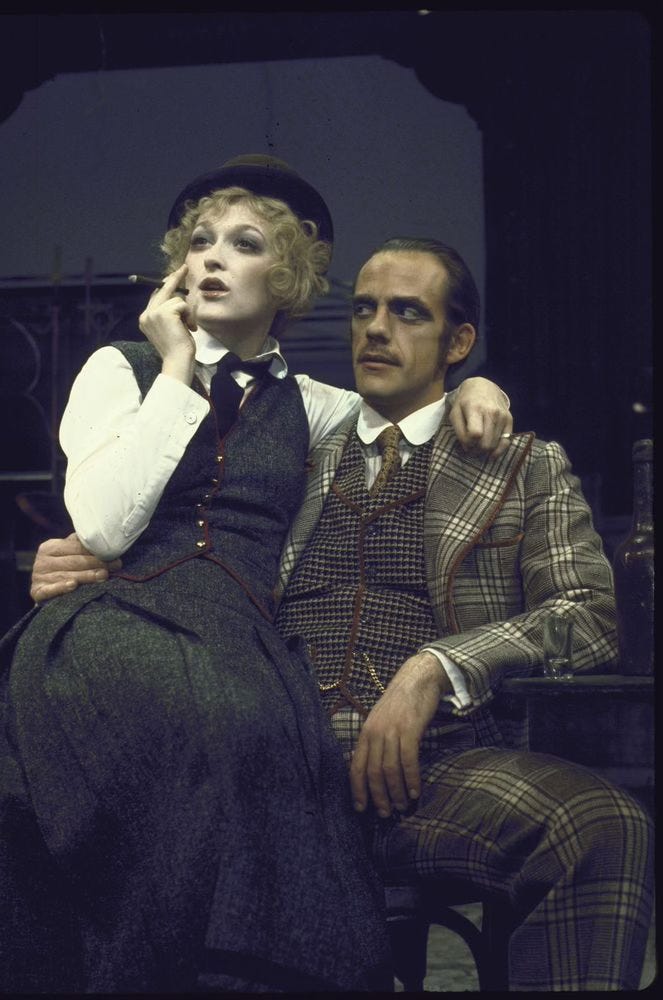
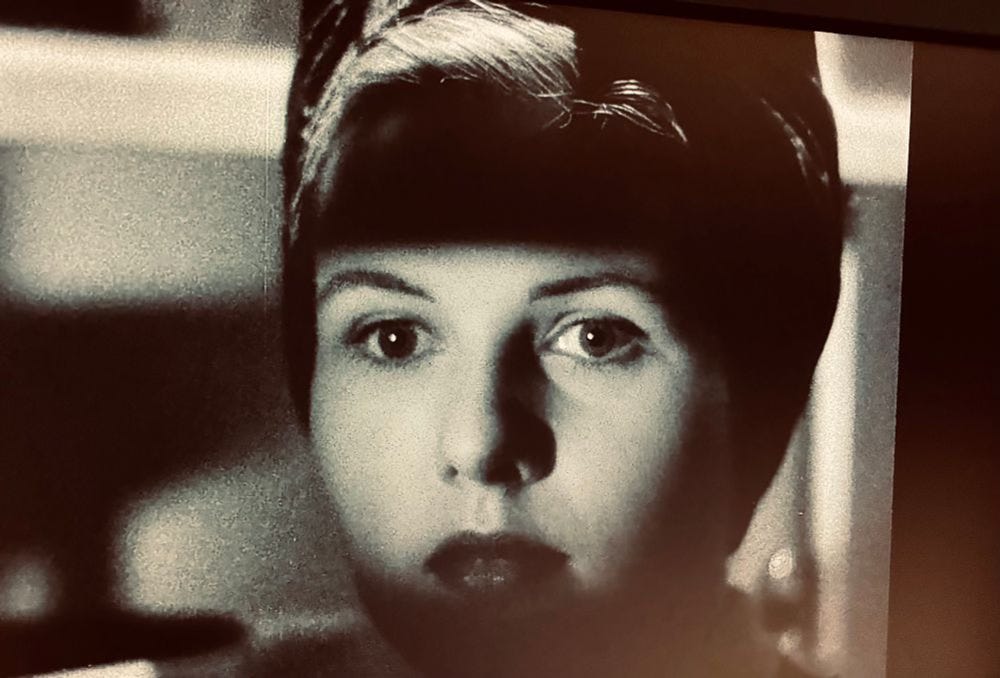
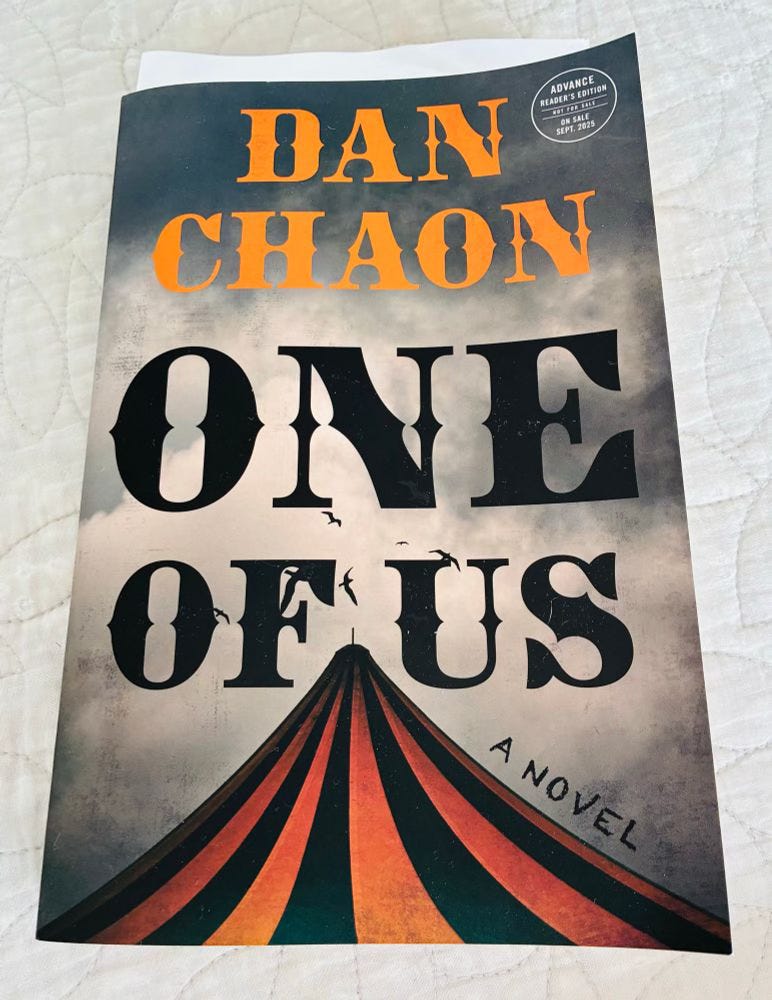

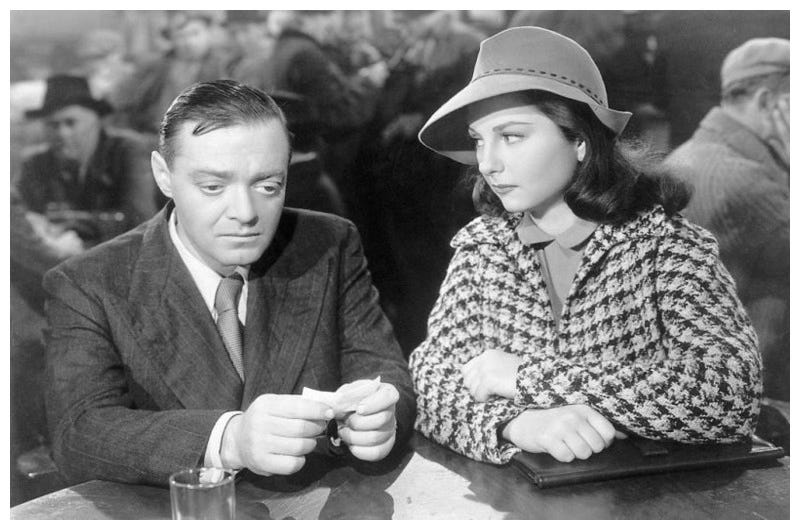
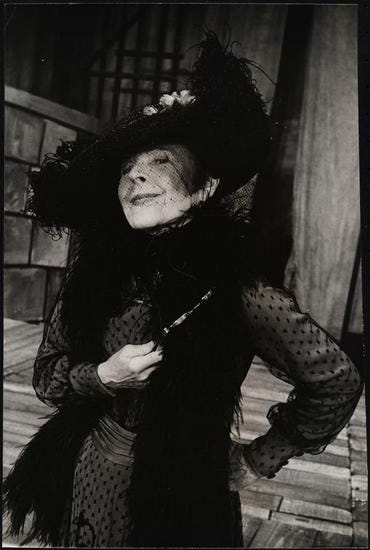
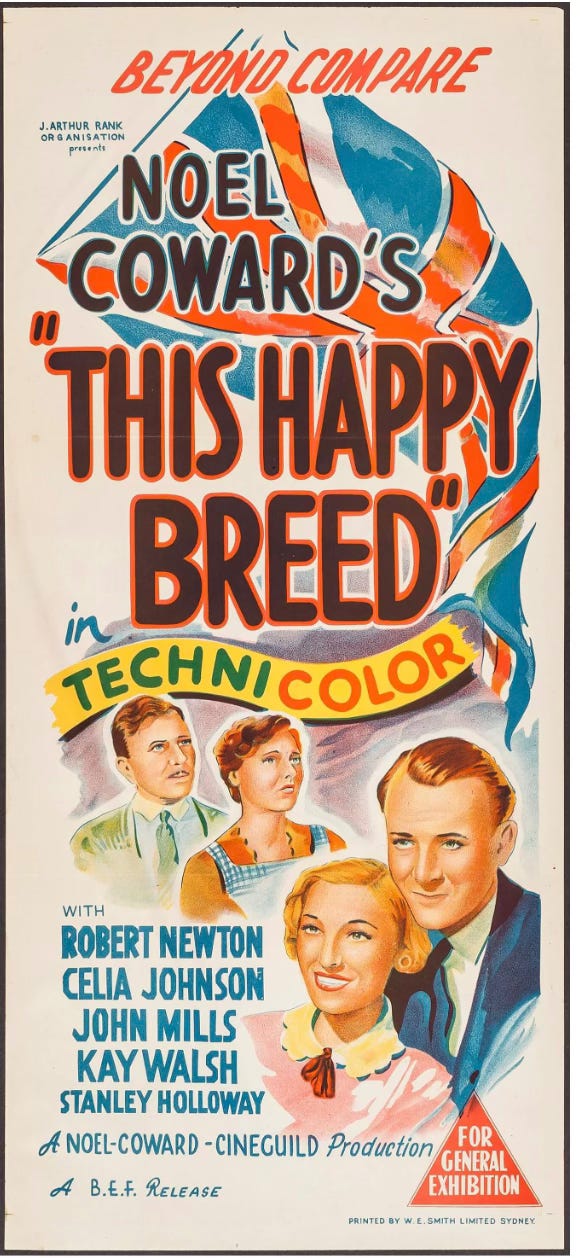
I am intrigued. Have you read *Geek Love*? Also, is it a "lit" on the back of Rosalie's head, or is it maybe a "slit"?
I'm sorry you haven't been sleeping well and have not found much joy. I remind myself that the news is always bad, because good news doesn't sell. And yes, there's a lot of crazy right now, so I limit news consumption and spend time on Facebook, rotting my brain. I hope you find more bits of joy as we navigate this mess.